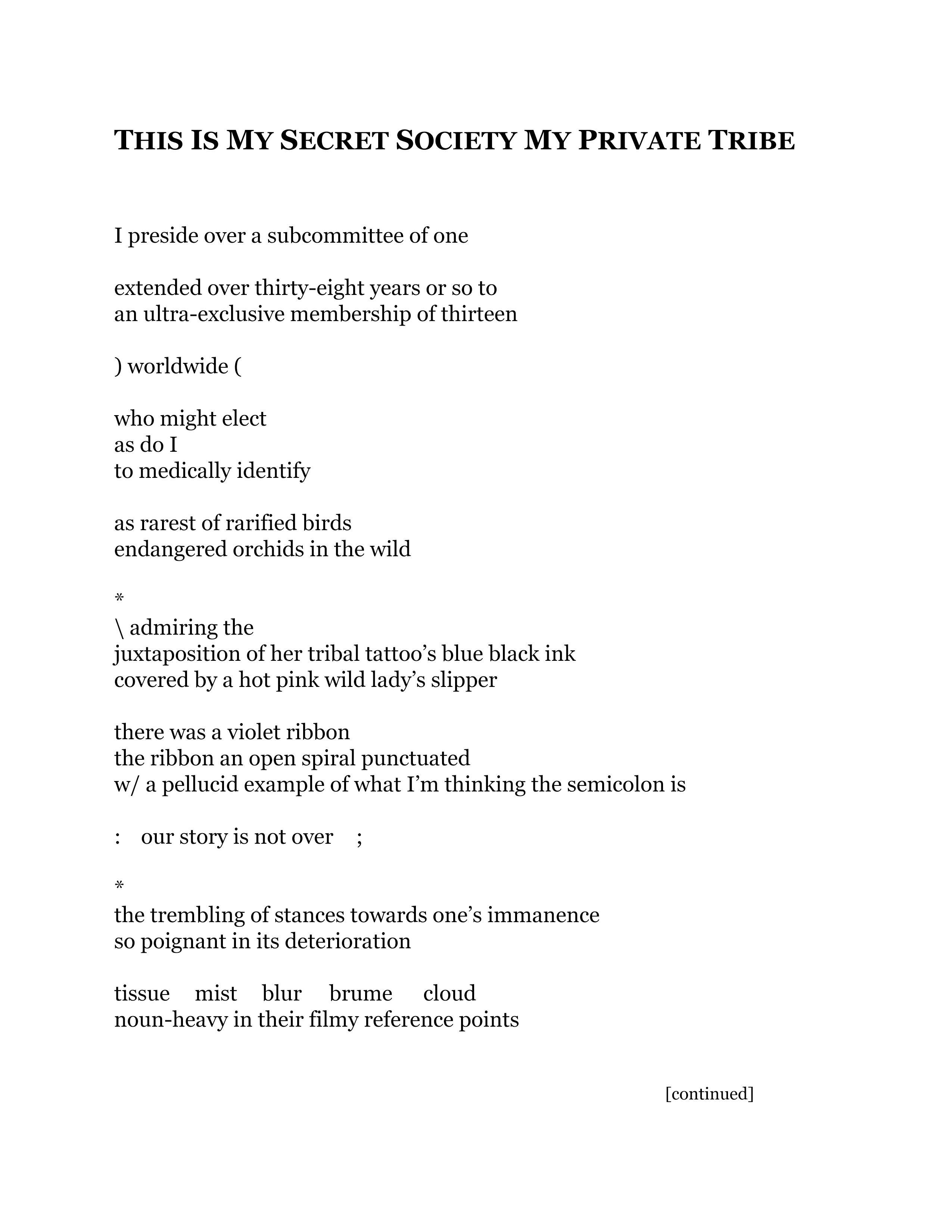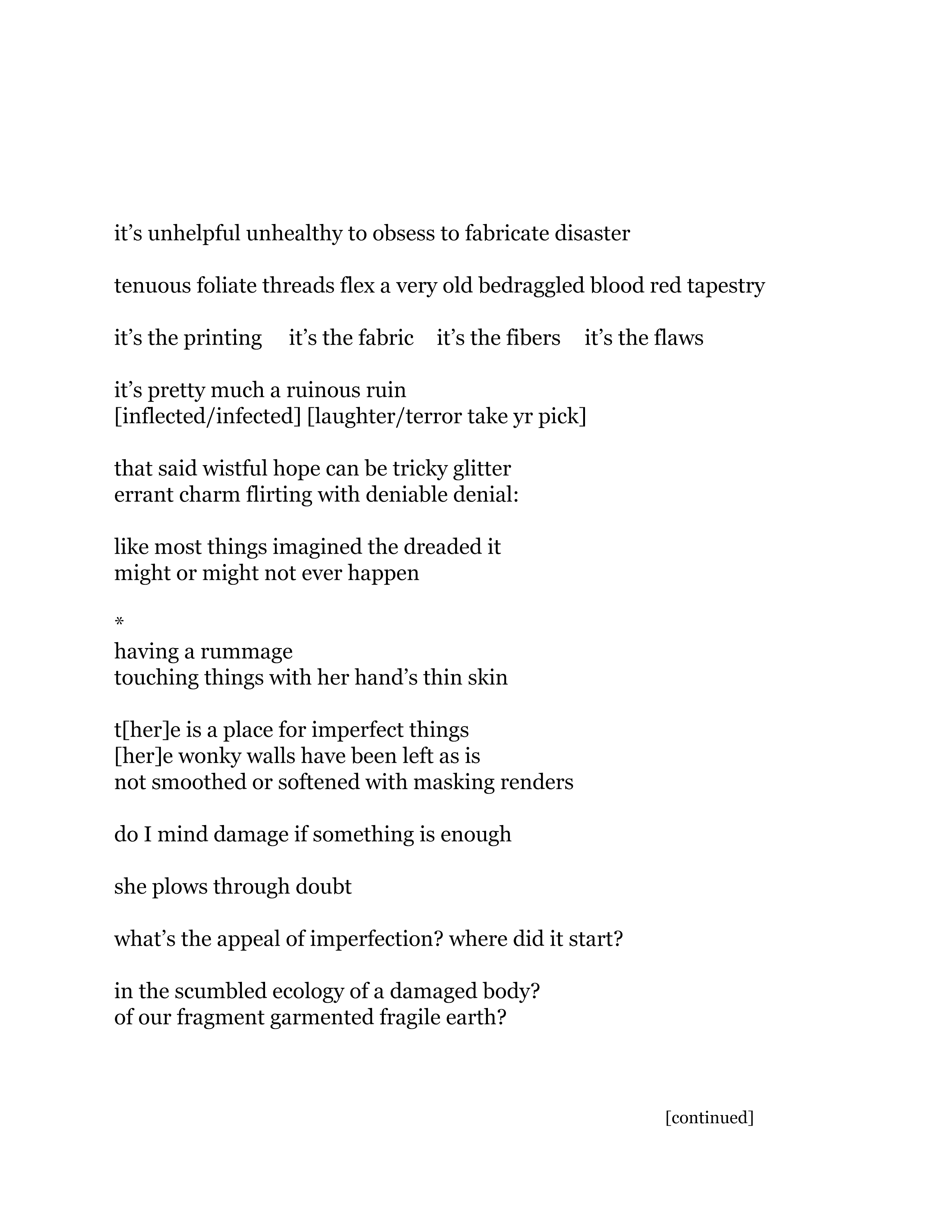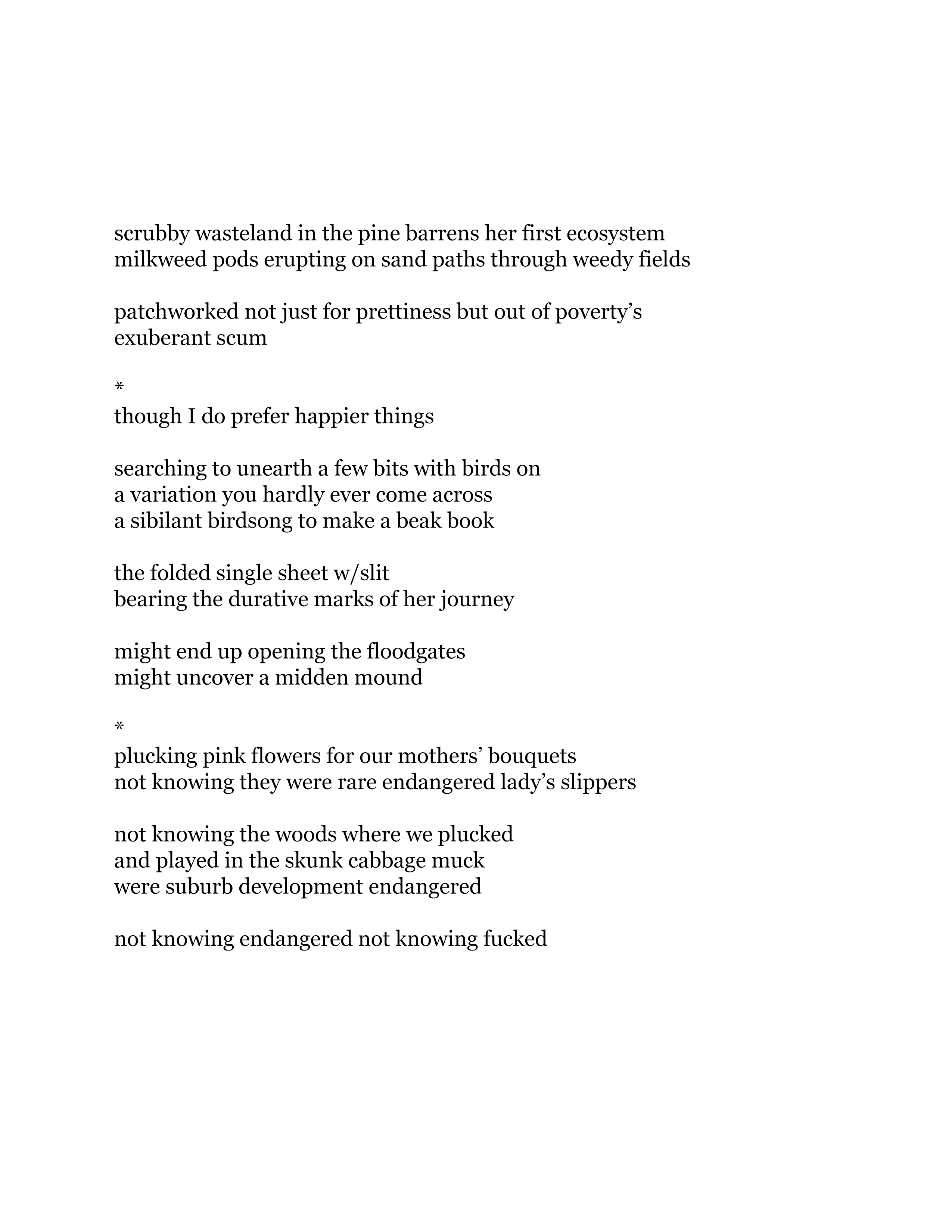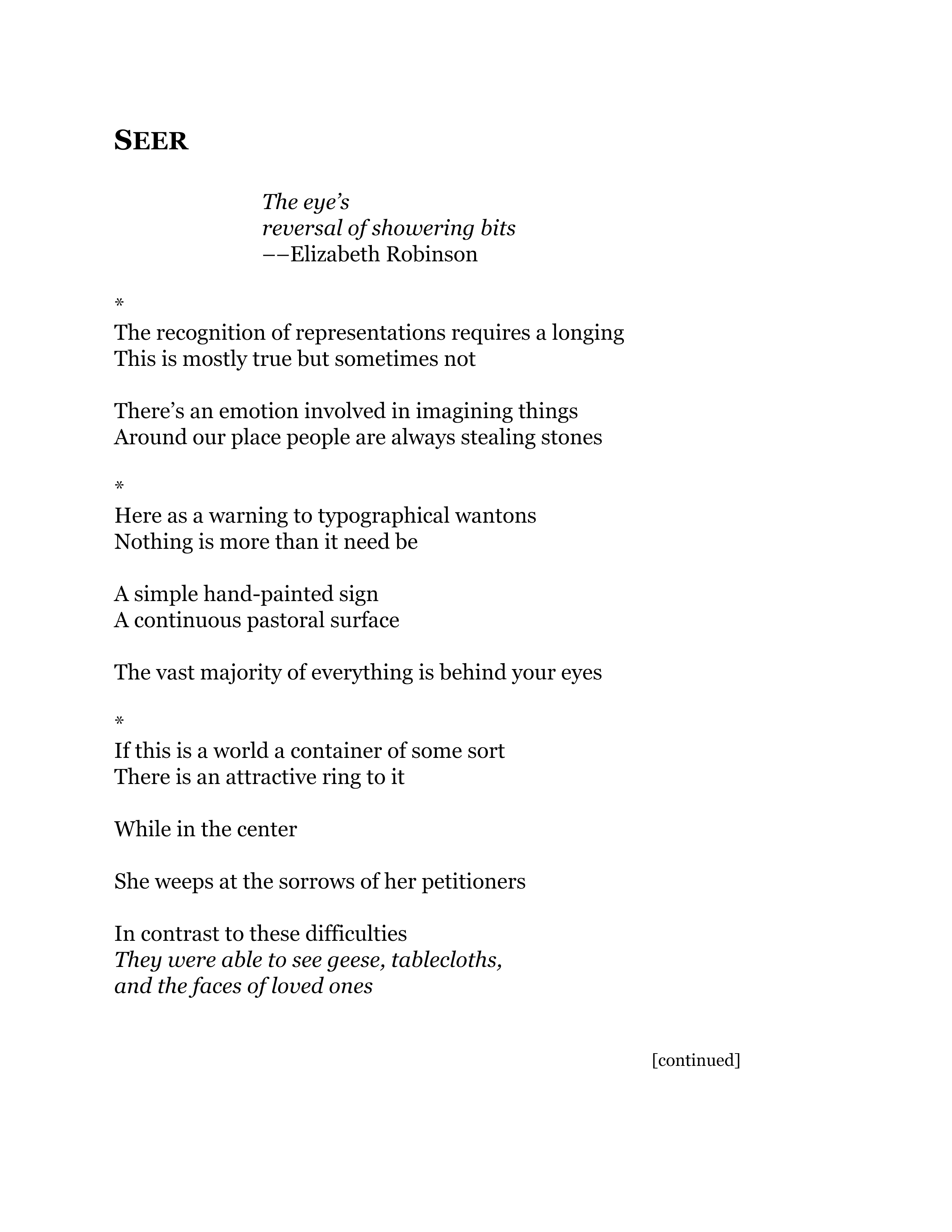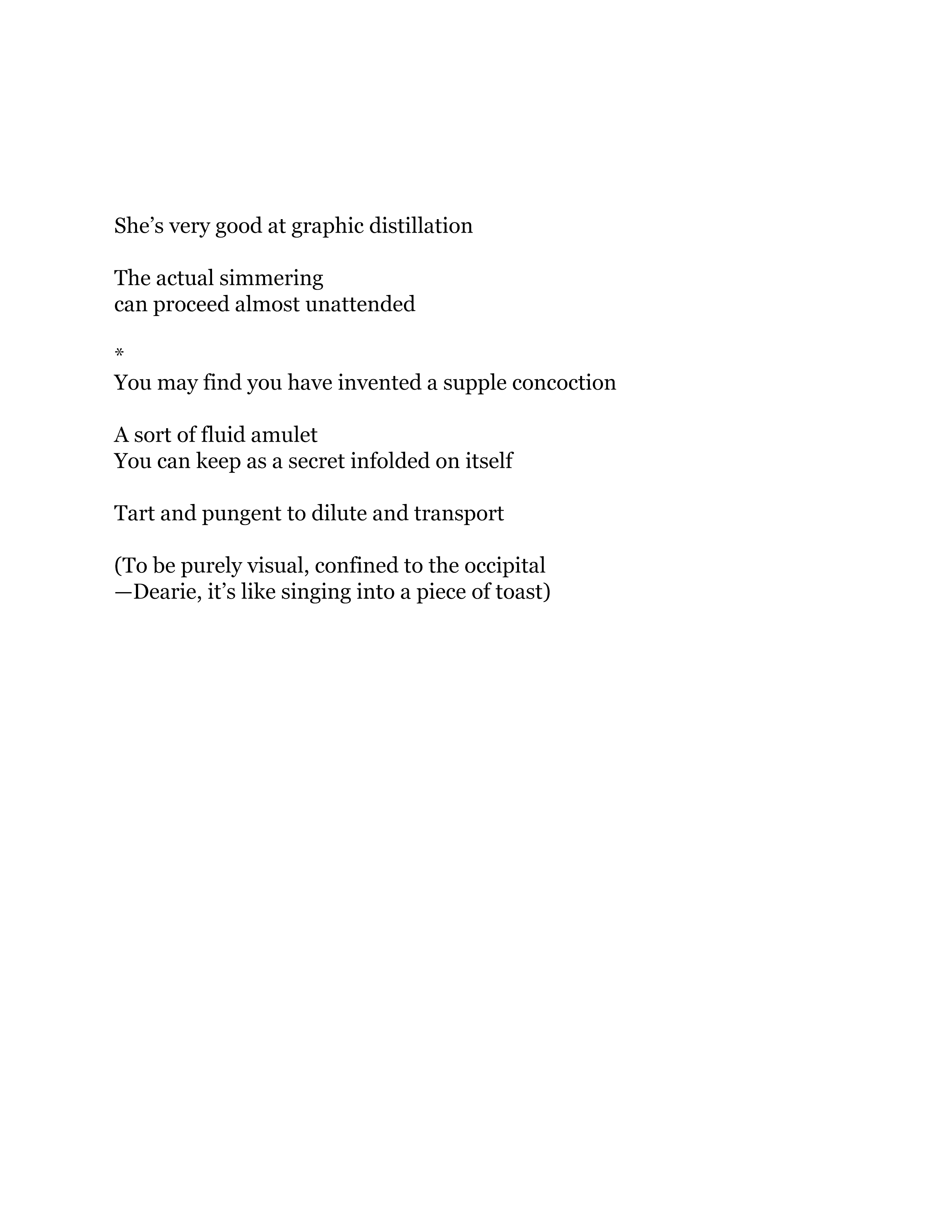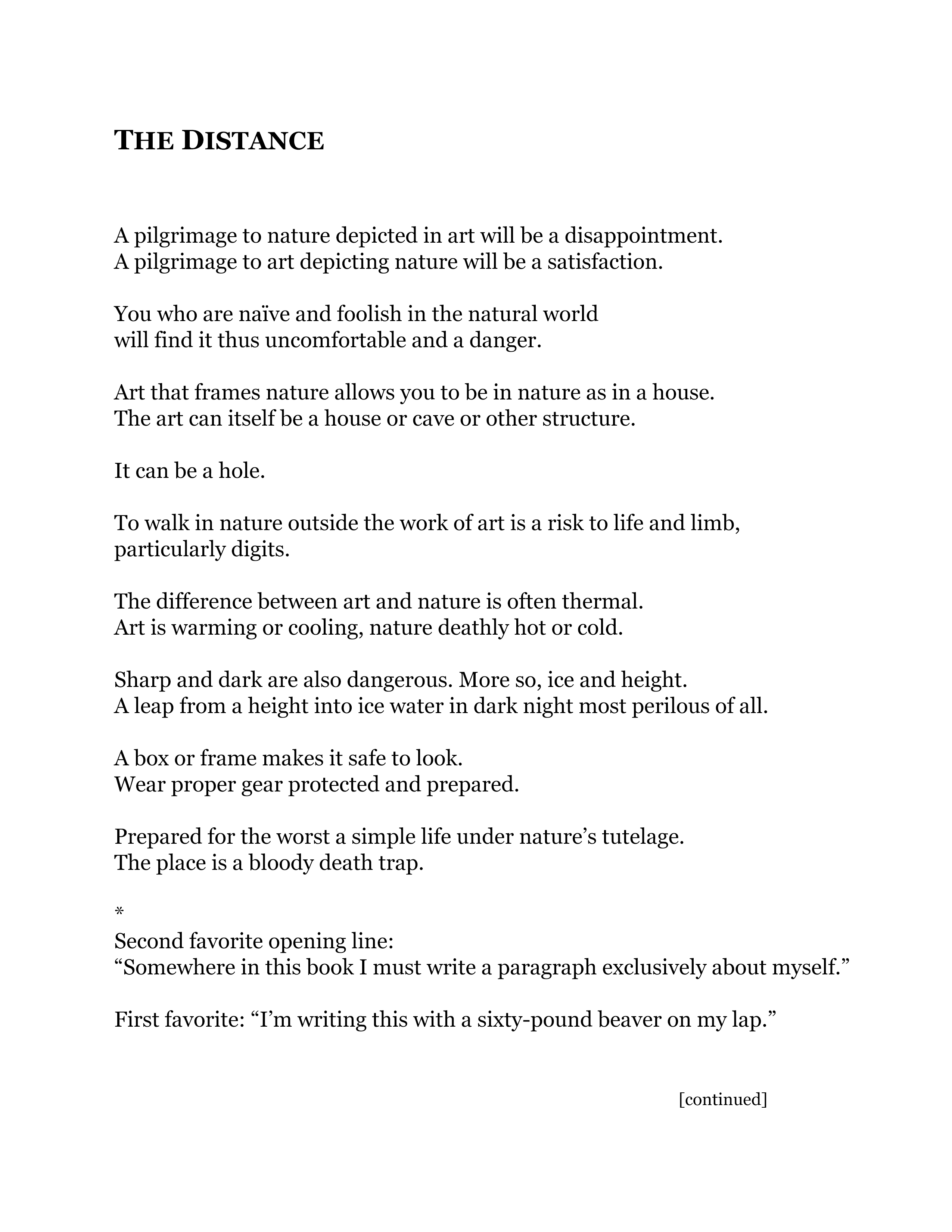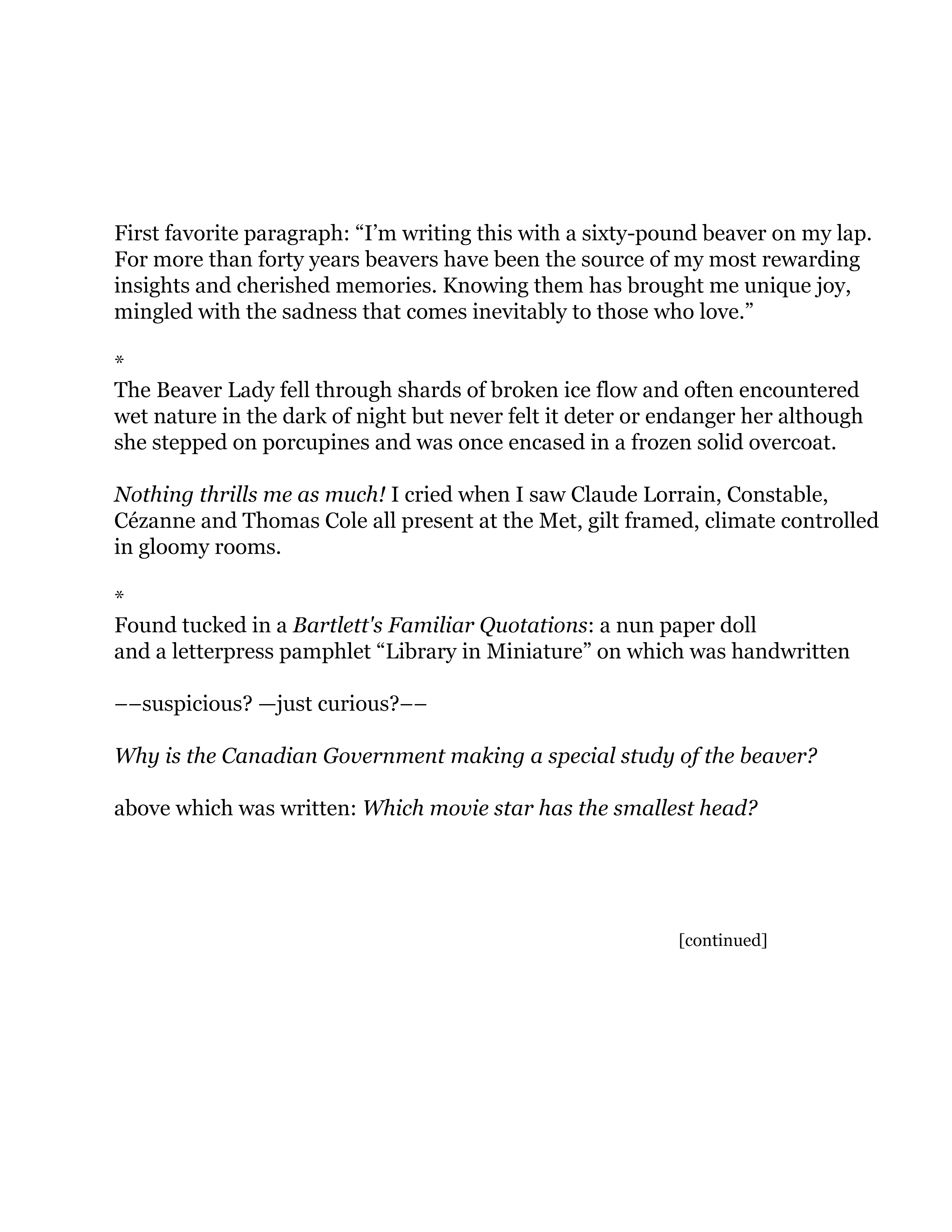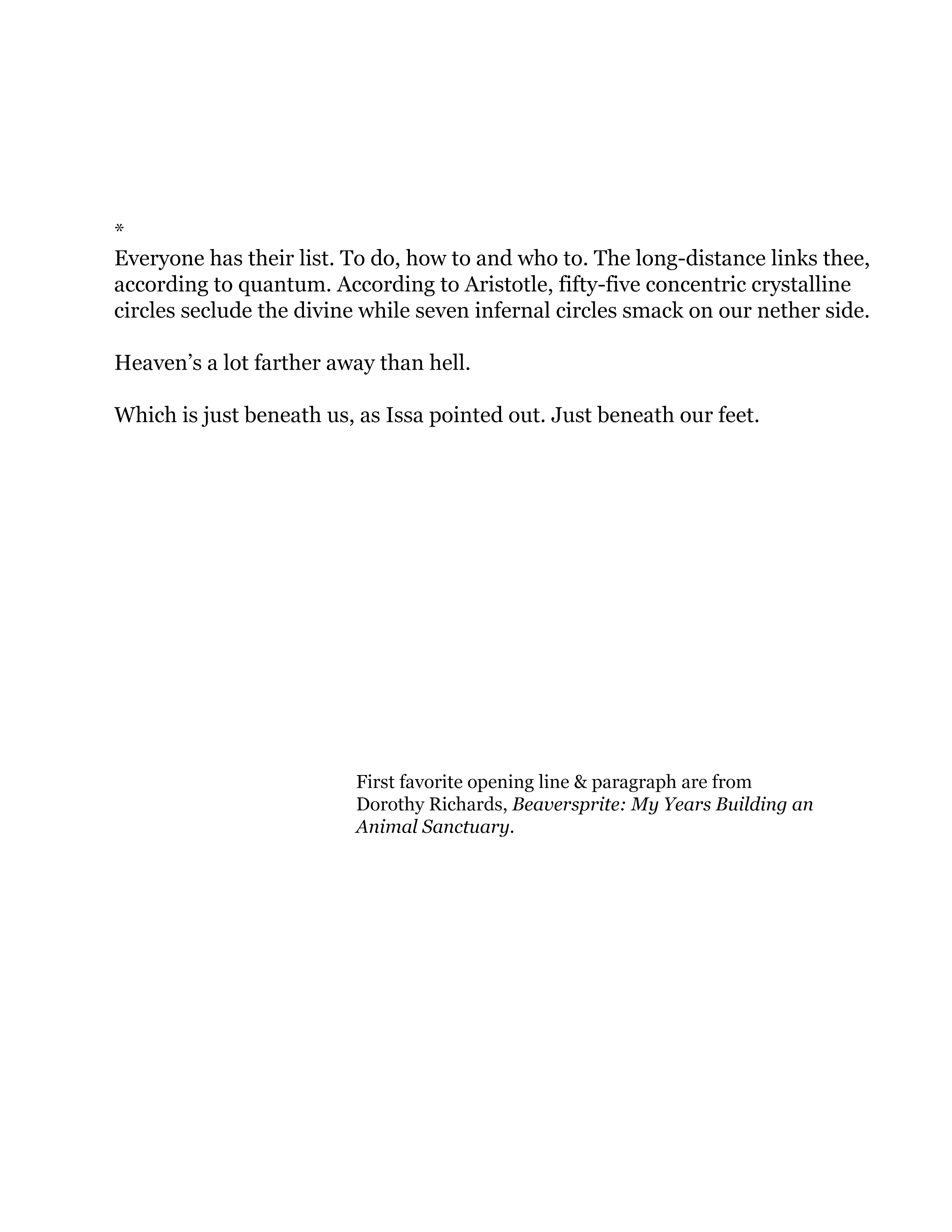3 poems by Dale Going
1 essay by Alison Swan,
on the poems of Dale Going
Reclamation
When it comes to the “fountain of energy flowing through a circuit of soils, plants, and animals,” everyone alive now, whether they have felt themselves feel it or not, has experienced monumental loss. Everyone alive now is bereaved. Something essential has been taken, continues to be taken. To call what some of us express in the face of this loss, grief, to say we mourn, is to employ borrowed terminology. Like every tragedy, this tragedy is, among other things, a failure of language and imagination.
Each day I read poems. Sometimes they seem to look away from this loss. Sometimes they seem to nibble around the edges of it. Sometimes, as with “This is My Secret Society My Private Tribe,” “Seer,” and “The Distance,” they seem born from the center of one individual human’s experience of this loss. These poems are records of what Art can, in the absence of the right words, be. In this case, “house or cave or other structure,” i.e., shelter.
Though once wild Nature could be a pastoral place for “plucking flowers for our mother’s bouquets” and “[playing] in the skunk cabbage muck” it is now “deathly hot and cold,” “sharp and dark” (the word “shark” lurks there), an inhospitable killer. I think of TV-show Nature, where roaring bears practically knock on the door of the main character’s trailer. Who among us, feeling ripped forever from that place where pink ladies-slipper orchids once beckoned, wouldn’t understand, maybe be inspired by, the impulse to memorialize wildflowers with a tattoo—Art inscribed on skin/Nature—punctuated with an inked semi-colon, which could mean: “our story isn’t over.” And not just humans’.
Maybe there used to be words to name what it feels like to witness extirpation—of species, of ecosystems, of certain kinds of under-the-sky experiences. Maybe someone still alive knows one or some of these words. May they find their way to a bullhorn. In the meanwhile, I will keep turning to poems like these, which make me want to venture: Heaven is beneath our feet, semi-colon.
I have always known poems as a thing that apprehends the ineffable. A paradox and a pleasure, whatever the context. And in 2025, that context is, well, monumentally challenging. To feel the end of a species or the end of an ecosystem then endeavor to articulate and thereby share that feeling, means confronting the limitations of language. Twenty-some years ago, when I heard a poet introduce her poem about bees thus: “I didn’t know I was writing an elegy,” I cringed, and not for the reason I should have: elegies are compositions we write to honor the death of an individual. They are written from within the understanding that every individual dies, while life—the fountain—goes on. Elegy is not the word to name a composition that anticipates the fountain running dry. Grief is not the word to name what living beings feel as they anticipate the drying up. And mourning names what happens after loss not in the midst of it. There is no funeral director for this kind of loss, but there are poems like these.

